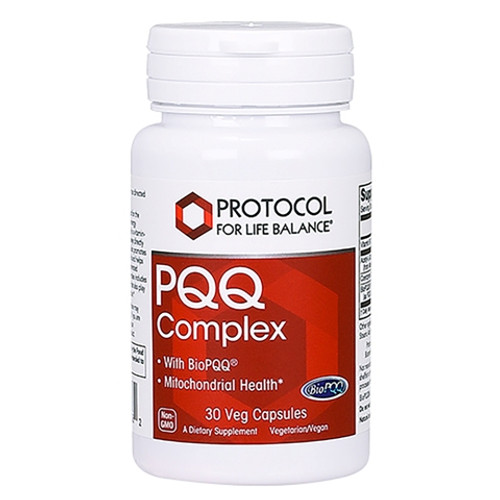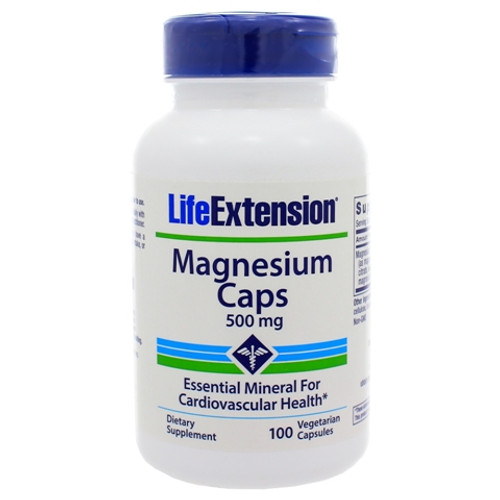The ultimate cellular rejuvenator
Your mitochondria are the cellular energy generators that supply power to energy intensive organs like your heart, brain, and kidneys. As you age, the number of functional mitochondria you have in your cells declines. And that can dramatically impact your health and longevity. But there is a solution. Taken daily, PQQ (pyrroloquinoline quinone) can activate genes that promote the formation of brand new mitochondria for more youthful cellular energy production. So make PQQ Caps a part of your daily regimen!
Benefits at a Glance
- Supports the generation of new mitochondria (mitochondrial biogenesis)
- Potent antioxidant
- Supports heart health and cognitive function
- Supports the defense of mitochondrial DNA
- Works synergistically with CoQ10
- Supports Mitochondrial Biogenesis
As you age, the number of functional mitochondria in your cells declines precipitously, dramatically affecting health and longevity.1-7
Studies show that the optimal dose of 20 mg of PQQ (pyrroloquinoline quinone) activates the genes that promote the formation of brand new mitochondria for more youthful cellular function.
PQQ Preserves Mitochondrial Function
The enormous amount of energy generated within the mitochondria exposes them to constant free radical activity. The resulting mitochondrial decay is a hallmark of aging. PQQ protects and augments delicate mitochondrial structures to promote youthful cellular function in three distinct ways:
Antioxidant power. Like CoQ10, PQQ is a highly potent antioxidant.8,9 Its extraordinary molecular stability enables it to facilitate thousands of biochemical reactions in the mitochondria without breaking down, for maximum antioxidant and bioenergetic support.10
Favorably modulates gene expression. PQQ activates genes that promote formation of new mitochondria11 and beneficially interacts with genes directly involved in mitochondrial health. These same genes also support healthy body weight, normal fat and sugar metabolism, and youthful cellular proliferation.12
Mitochondrial defense. Mitochondria possess their own DNA, distinct from the DNA contained in the nucleus. Unfortunately, compared to nuclear DNA, mitochondrial DNA are relatively unprotected. PQQs antioxidant potency and favorable gene expression profile act to support mitochondrial defense.
PQQ is Essential for Whole-Body Support
PQQ is an essential nutrient, meaning that your body cannot make it on its own. A growing body of research indicates that PQQs unique nutritional profile supports sleep quality,13 heart health and cognitive function alone14-16and in combination with CoQ10.17,18 This comes as no surprise, given how much energy these vital organs need.
Research shows that PQQ supports heart cell function in the presence of free radicals and promotes blood flow in the heart muscle.14,16 When taken with CoQ10, 20 mg per day of PQQ has been shown to promote memory, attention, and cognition in maturing individuals.18
References:
- Lancet. 1989 Mar 25;1(8639):642-5.
- Curr Opin Clin Nutr Metab Care. 2010 Sep;13(5):511-7.
- Age (Dordr). 2010 Sep;32(3):337-46.
- Ageing Res Rev. 2011 Apr;10(2):238-52.
- Commun Integr Biol. 2011 Sep;4(5):627-9.
- Cell Mol Life Sci. 2010 Oct;67(20):3435-47.
- Zhonghua Yi Xue Za Zhi (Taipei). 2001 May;64(5):259-70.
- Eur Spine J. 2015 Aug;24(8):1702-10.
- Exp Gerontol. 2015 Jun;66:1-9.
- Alt Med Rev. 2009; 14(3):268-77.
- J Biol Chem. 2010. Jan 1;285:142-152.
- Entrez Gene: PARGC1A peroxisome proliferator-activated receptor gamma, coactivator 1 alpha [ Homo sapiens ] GeneID: 10891.
- Functional Foods in Health and Disease. 2012 Aug;2(8):307-324.
- Cardiovasc Drugs Ther. 2004 Nov;18(6):421-31.
- J Cardiovasc Pharmacol Ther. 2006 Jun;11(2):119-28.
- Biochem Biophys Res Commun. 2007 Nov 16;363(2):257-62.
- J Clin Biochem Nutr. 2008 January; 42(1): 2934.
- FOOD Style. 2009;21:13(7)50-3.








